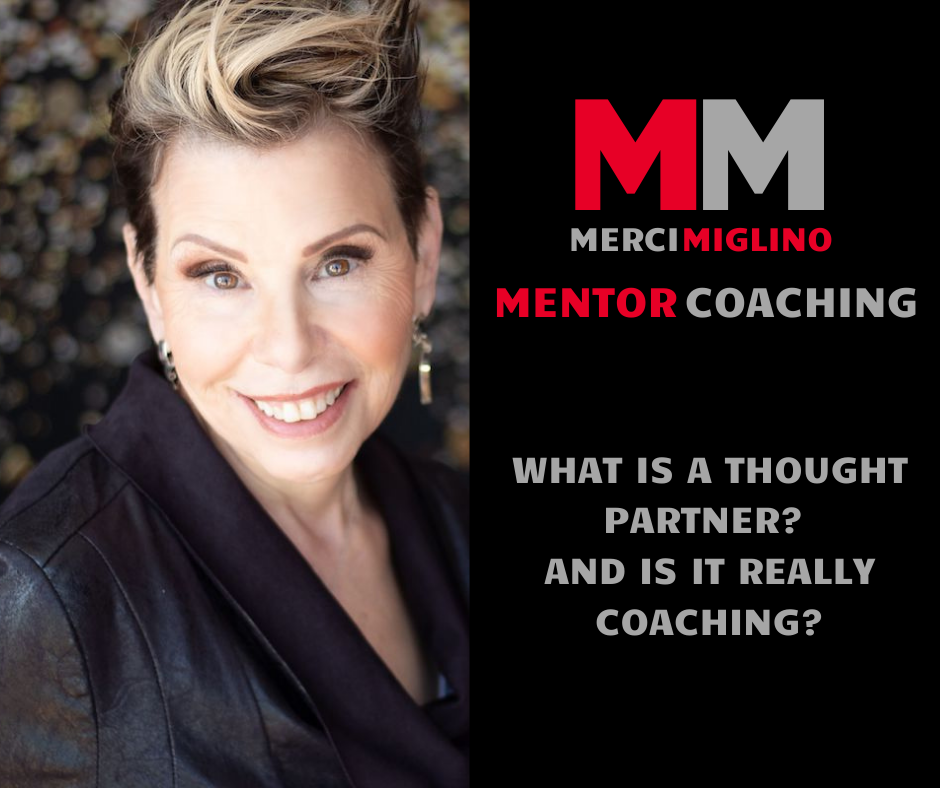I’ll explain and yes, it’s coaching.
The recent Olympics and the stories of victory and defeat are so applicable to everyday life that it is no wonder professional coaching took its framework from how athletic coaches bring out the best in others.
A coach doesn’t need to perform as well as those they coach. The same is true for life and workplace coaches. What we have is a powerful process which involves committed listening and an understanding of perspectives that get folks stuck.
A student in my mentor groups, struggling with this idea, asked, when is it appropriate to share your resources or experience? It seems that a lot of coaches, especially newly trained coaches, want to share such information with clients, but they’re not sure if this is leading or advising and they were likely taught that coaches are not consultants.
I shared with this coach a thought that might reframe her perspective. What if you think of yourself as at thought partner? She paused and her face lifted with consideration and then the awareness.
Of course, I didn’t invent this term. It is frequently used in executive and leadership coaching to explain the value of a coach to highly successful and ambitious people.
But perhaps it is new to you. As a thinking partner, we help clients ‘think things through’, to open and stretch their thinking, inviting a reframe or trying on a different perspective which often reveals multiple causes and possible outcomes to any choice. Coach as a thinking partner works to raise awareness of information gaps, assumptions, and patterns of thinking in an objective way.
It’s like brainstorming – a competency of coaching according to the International Coach Federation (ICF). In the current competencies, the behavioral markers for Professional Certified Coach (PCC) explain the process like this:
- Brainstorms and assists the client to define actions that will enable the client to demonstrate, practice, and deepen new learning.
- Helps the client to focus on and systematically explore specific concerns and opportunities that are central to agreed-upon coaching goals.
- Engages the client to explore alternative ideas and solutions, to evaluate options, and to make related decisions.
Such brainstorming encourages people to come up with thoughts and ideas that are new and even a bit silly and can be crafted into creative solutions, hopefully sparking even more ideas. As a thought partner this is exactly what we do to get people unstuck by challenging to see beyond their normal ways of thinking.
Most importantly, a thought partner/coach must be non-judgmental and objective for the process to be productive and the resulting actions sustainable. We are not telling them what to do or leading them in a particular direction. We are giving them the time and space and the benefit of being on the sidelines to open up possibilities and break down assumptions about a problem or challenge.
So, what does this sounds like in real coaching? We explore and demonstrate this in our unique ICF Credential Prep Course. Find out more here. And feel free to book a brief call with me (NO HARD SELL, I PROMISE). I’m happy to answer your questions.
